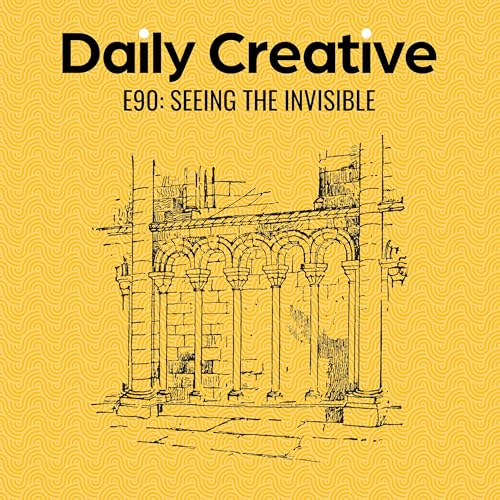On this episode of Daily Creative, we explore the myth of the lone genius and make the case for why sustainable creative brilliance happens when we grow and nurture real relationships. We’re joined by Daniel Coyle, bestselling author and researcher, whose new book Flourish examines how true growth emerges not through competition, but through intentional connection and community.
We discuss why relationships sit at the heart of creativity, what it means to build a meaningful circle, and how to design environments where both individuals and groups can grow. Daniel shares practical insights on “making meaning” and “group flow,” illustrating how small acts—like telling stories or organizing joyful gatherings—can catalyze shared energy and transformation. We reflect on why the most profound creative work, and indeed the solutions to our most complex problems, are more likely to be found at the neighborhood level than through grand top-down initiatives.
This conversation isn’t just about feeling less alone; it’s a blueprint for intentional action in your creative life. We leave you with a challenge: take one step this week to strengthen your creative community, whether that’s reaching out to a peer, convening a group, or simply asking deeper questions.
Five Key Learnings from the Episode:
- Community Is Creative Infrastructure: Creativity doesn’t thrive in isolation. The most resilient, sustainable creative work is built on relationships that provide stability, challenge, and honest feedback.
- Cultivate, Don’t Compete: Flourishing is about shared, meaningful growth—think gardens, not games. Real creative communities are spaces for nurturing, not just winning or accumulating.
- Design for ‘Beautiful Messes’: Innovation and group flow emerge when we intentionally create environments where people can experiment, collaborate, and bring out new facets in each other—even if things get a little messy.
- Deep Questions Build Trust: Asking ambiguous, personal “deep questions” unlocks vulnerability, connection, and trust far more quickly than waiting for trust to appear before opening up.
- Power With, Not Power Over: Leaders unleash real growth when they support, ask great questions, and give power away—moving from controlling outcomes to facilitating collective brilliance.
Get full interviews and bonus content for free! Just join the list at DailyCreativePlus.com.
Mentioned in this episode:
The Brave Habit is available now
My new book will help you make bravery a habit in your life, your leadership, and your work. Discover how to develop the two qualities that lead to brave action: Optimistic Vision and Agency. Buy The Brave Habit wherever books are sold, or learn more at TheBraveHabit.com.
Apply for Creative Leader Roundtable
What if you had a space every month to sharpen your leadership edge without the fluff? The Creative Leader Roundtable is where smart, driven, creative leaders gather to exchange ideas, solve real challenges, and grow together. So if you lead a team of thinkers, makers, or dreamers, this is your lab. We're launching soon with a new group of leaders. So, if you're interested, check it out and apply at CreativeLeader.net.
 Feb 3 202621 m
Feb 3 202621 m 38 m
38 m Jan 20 202627 m
Jan 20 202627 m Jan 13 202627 m
Jan 13 202627 m Jan 6 202639 m
Jan 6 202639 m 22 m
22 m Dec 16 202522 m
Dec 16 202522 m Dec 9 202513 m
Dec 9 202513 m
